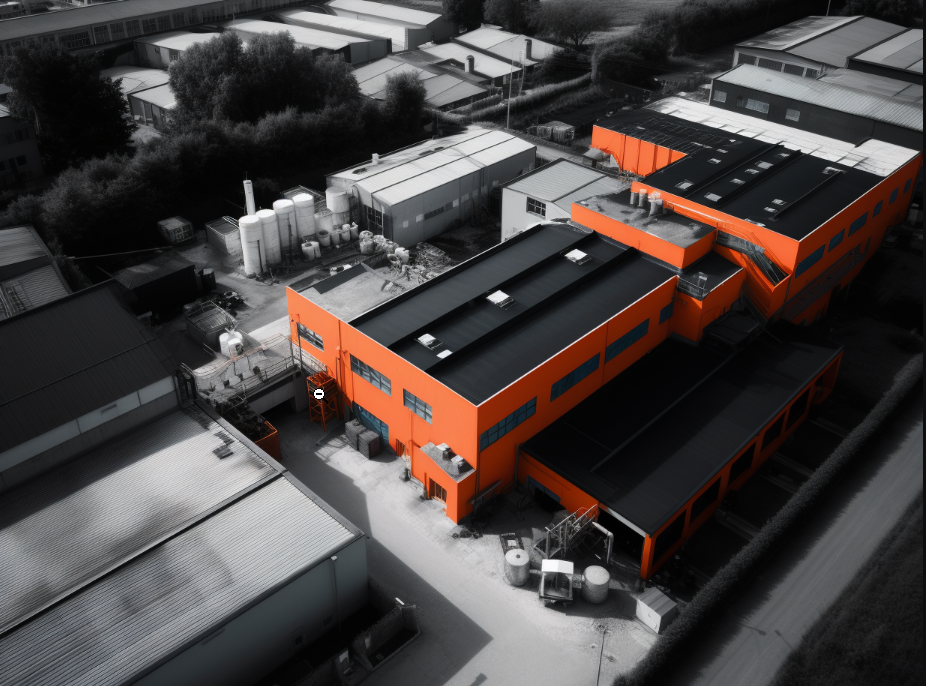
Fabless as a business model for hardware selling companies.
It’s shorter time-to-market, and it’s less risky. It’s 100% focus on customers and product, by putting manufacturing operations on autopilot.

What is fabless manufacturing?
The term fabless describes a business model of companies that produce physical goods without operating proprietary production facilities. Instead, they use external suppliers (contract manufacturers) to execute all manufacturing steps until end customer fulfillment. In the past, the term has been primarily used in conjunction with semiconductor companies that do not have their own production facilities and are dependent on foundries (contract manufacturers) such as Globalfoundries, Samsung Semiconductor, UMC or TSMC.
How does it work?
In the fabless model, companies focus on designing and developing their products, while outsourcing the actual manufacturing process to specialized third-party vendors, known as contract manufacturers (CMs).

This approach allows companies to benefit from the expertise of highly specialized suppliers while avoiding the need to invest in expensive manufacturing facilities and equipment.
However, the fabless model is not limited to the semiconductor industry. With the advent of new supply chain management tools, like virtualfab.io, small and medium-sized enterprises (SMEs) from various industries can now leverage the benefits of fabless manufacturing.
What are the benefits of fabless manufacturing for non-semiconductor industries?
Firstly, the fabless model requires less working capital, as companies don’t have to invest in manufacturing facilities or equipment. This allows companies to focus their resources on product development, customer service, and marketing.
Secondly, outsourcing the manufacturing process to specialized suppliers can help companies to improve efficiency and meet environmental and regulatory requirements. Specialized suppliers can also offer better quality control and faster turnaround times.
Thirdly, the fabless model makes it easier to scale production in both directions, without the need to hire or fire staff or invest in new equipment. This flexibility allows companies to respond more quickly to changes in demand.
Finally, the fabless model allows companies to shift their sourcing locations and technologies according to geopolitical requirements. This can help to mitigate risks associated with trade disputes or supply chain disruptions.
Potential drawbacks to the fabless model
However, there are also some potential drawbacks to the fabless model that companies need to be aware of. For example, choosing the wrong contract manufacturer can lead to unwanted dependencies and a less resilient supply chain. In addition, if knowledge management and quality control are not properly managed, companies risk becoming overly reliant on their suppliers.
Implementing a fabless manufacturing model also requires a high degree of supplier management expertise, which can be hard to find and expensive. Companies need to ensure they have the right strategic and operational buyers in place to manage their relationships with contract manufacturers effectively.
In conclusion, while the fabless model was traditionally associated with the semiconductor industry, it is now becoming increasingly relevant to a wider range of industrial companies. By leveraging specialized suppliers, companies can benefit from increased efficiency, flexibility, and scalability. However, to reap the benefits of fabless manufacturing, companies need to carefully manage their supplier relationships and invest in the right talent to manage their supply chains effectively.
Frequently asked questions (FAQ)
Yes, since subcontracted manufacturing management platforms like virtualfab.io are publically available now. Using these platforms enables companies to manage the vast complexity of distributed supply chains without entering dependencies from single sources.
- Requires less working capital.
- Can help companies to improve efficiency and meet environmental and regulatory requirements.
- Production can be scaled easier in both directions.
- It mitigates supply-chain risks and makes your company more resilient.
You can start today be booking a free webinar covering this topic in depth.
Want to dive deeper AND EXPLORE THE BENEFITS OF FABLESS MANUFACTURING?
join our webinars!
Do you have any further questions on fabless manufacturing?

Leave us your contact details! We are happy to assist.
© Copyright 2023 fabnamix. All rights reserved.
